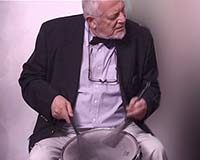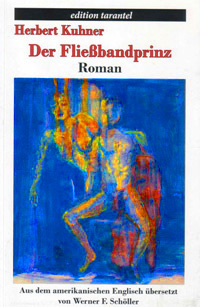Henry and Polonius
My favorite Shakespearian characters are Henry V and Polonius.
The Bard’s Henry is the most eloquent of men. He’s a warmonger who presents both sides of the argument beautifully and then makes the military choice.
The French are the defenders and the British, the invaders. Outnumbered by the French knights, Henry conquers them with his small force by using guerilla tactics. Thus, France is his. (The French had to wait for Joan, to get them back on track. And then showed their gratitude by burning her at the stake.)
The casus belli: the French Dauphin sent henry a set of tennis balls in order to mock his playboy behavior. And Henry, instead of taking his racquet out, sets sail for France with knights and bowmen to teach the dauphin a lesson.
Even when I saw the Olivier film as a pre-teen, I thought that tennis balls were a feeble reason for waging war against a foreign land. Then, why do I love him so? It is because of the magnificent way he states his aims. Has there ever been a more rousing call to arms than his Crispin’s Day Speech? And I say this as one who hates war. But then I am one who loves eloquent language.
Even when I saw the Olivier film as a pre-teen, I thought that tennis balls were a feeble reason for waging war against a foreign land. Yet, has there ever been a more rousing call to arms than the St. Crispin’s Day Speech? And I say this as one who hates war and favors the peaceful solution. But then I am one who loves eloquent language.
My namesake King Harry may be the antithesis of a man to admire. He verbally weighs the choices and invariably chooses the contentious path. Of course I favor the peaceful solution.
Then, why do I love him so? It is because of the magnificent way he states his aims. It is so stunningly beautiful that it is sweet to the ear.
In Oliver’s Hamlet, the marvelous British actor Felix Alymer plays Polonius. Polonius is not at all like Harry. He’s a nosy busybody and a gossip who eavesdrops whenever there’s a curtain to hide behind. And yes, he has platitudes galore to ladle out. No other actor in the world could have played that fuddy-duddy role so well.
Polonius always brought my father to mind. My father was Polonius personified. He was an eavesdropper par excellence He ladled out the platitudes and truisms and he believed every one he had come upon – and remembered it, and would declaim it if the occasion came. As a matter of fact, he did not need an occasion. He had platitudes ready no matter what. He really believed Ben’s; “Early to bed, early to rise, makes a man healthy, wealthy and wise.” I mean, what the hell, you can’t call it and its ilk falsehoods. They may be nice advice, but they don’t mean much in the brutal struggle of life.
Uttering buzzwords and eavesdropping means constantly putting your foot in it, to the embarrassment of others – and in my father’s case, especially to my embarrassment. Well, my father was a true believer and true believers never tire of expressing clichés, whether you listen or not.
Let’s get back to the Bard and Polonius. The Bard must have been dreadfully irritated by Polonius. Authors have the option of cancelling their characters out.
Curiosity killed the cat – and Polonius. He gets his comeuppance for listening in. His feet stick out from the curtain he is hiding behind. Hamlet, thinking that it is his hated stepfather, penetrates both curtain and Polonius with his bodkin, and out falls the eavesdropper, as dead as the proverbial doornail.
However, my father was unstoppable. He continued to eavesdrop and ladle out platitudes till
the ripe old age of 88.
I wrote this piece on a warrior and a busybody. The busybody was my father. I’m sorry, but he was bad news! And when you are dispersed bad news becomes horrible news. My mother suffered and so did I, but my fate cannot compare what she went through. At any rate, I say this and mean it. If birth were a democratic procedure, I would not be here.
My father wanted me to be gone before I was. He was upset when I found out about that.
You can laugh at my comment if you like.
“That’s the only good thing I heard about you yet!”
-Herbert Kuhner








 Users Today : 69
Users Today : 69 Users Yesterday : 138
Users Yesterday : 138 This Month : 3550
This Month : 3550 This Year : 9609
This Year : 9609 Total Users : 191414
Total Users : 191414 Views Today : 185
Views Today : 185 Total views : 1894476
Total views : 1894476 Who's Online : 1
Who's Online : 1




